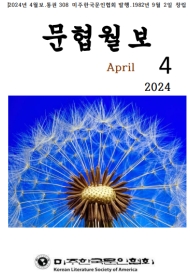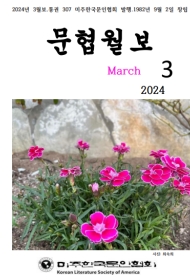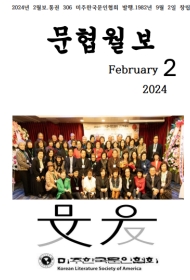Badenheim 1939
===============
Wolran Kim
March 2013
Badenheim 1939 holds the scenery of the resort town, Badenheim, near Vienna of Austria where live mostly middle class Jews. The year ‘1939’ tells of a tremendous historic background in one word. At this point in time, the power of the Nazi regime was spreading all over Europe and they were relocating all Jews to concentration camps. Austria, which was occupied by Germany, was not exceptional.
Badenheim was a peaceful and beautiful leisure town where people gathered to enjoy the annual summer music festival. Musicians came together to the hotel to prepare their event, while the Sanitation Department of Nazi forces began registration of Jews and began relocating them from day to day. People started to be kept in suspense, and blamed each other or vacillated between hope and despair. They often held an optimistic view of their future, but also sometimes tried to turn away from a realistic fear in the face of impending doom. No one knows what the future is. People of Badenheim in 1939 were similar to the people who entered the gas chamber without knowing in the black and white film of the Holocaust.
On the eve of the Holocaust, a touch of war and tragedy infiltrated step by step like fog in the peaceful daily lives of the town. The beginning of well known tragedy in the figures and conversations of the daily lives of ordinary people approached a much more realistic horror rather than the terror of war such as bombing or flames. In 1933, Hitler established a centralized totalitarian state in Germany.
Nazis occupied Austria and Czechoslovakia in 1938 and 1939, and Austria became a part of the German Third Reich from the affiliate to Germany. World War II burst out from Germany’s invasion of Poland on September 1939. 17 million people were killed during the war including 6 million Jews, Gypsies, POWs, homosexuals, disabled people, and political opponents of the Holocaust. All historical explanation is missing in this book, and the description of a child’s view about the eve of the tragedy approaches a much more realistic figure.
The author, Aharon Appelfeld (1932~), was born in 1932 in Bukovina when it was under Romania. His mother was killed like many other Bukovinan Jews, and he was imprisoned in the concentration camp as an 8-year-old in 1941. After escaping, he lived in Palestine, and served in the Israeli army. His life story is also the history of the background of Badenheim 1939.
Spring returned to Badenheim. In the country church next to the town the bells rang. The shadows of the forest retreated to the trees. The sun scattered the remnants of the darkness and its light filled the main street from square to square. It was a moment of transition. The town was about to be invaded by the vacationers.
In the first paragraph in this book, their fate is beginning to change. The Sanitation Department hangs the slogan in the street, “"Labor Is Our Life," "The Air in Poland Is Fresher," "Sail on the Vistula.”A variety of characters, doctors, businessmen, historians, working-class waiters, and prostitutes, guessed that they would just be moved to their hometown, not to the concentration camps. “For two hours they sat and spoke of death. Their voices were dispassionate. They were like people who had visited hell and were no longer afraid of it.” Humans are just good for nothing in the name of fate which is subordinate to race, nationality, politics, and war.
People in Badenheim are thrown into confusion, guessing their destiny under quarantines such as closed post offices and disconnected phones. The number ‘1939’ changes this peaceful town into a Jewish concentration camp. All anonymous characters, the schoolgirl, the pastry shop owner, the twins, the headwaiter, the conductor, the half-Jewish waitress, and the rabbi, speak for 6 million Jews in the Holocaust.
The only religious Jew, the old rabbi, is reflected as incompetent, failing in a superior religious knowledge. This appearance of the rabbi reminds me of Tanya Kahn’s (Jacob Kahn’s wife) words in My Name is Asher Lev, regarding the effectiveness of religion at the time of the Holocaust, “My younger brother was very religious. Like you. Everyone admired him. But the Nazis killed him anyway. It did not do him much good to be so religious” Religion must be satisfied only with the hope of an afterlife, not this world in front of God’s silence in this tragic moment.
Dr. Pappenheim’s expression facing the isolation of Badenheim, “A Jewish epidemic,” is widely read as an evil racism, because there is no other disease that is as contagious as racism through heredity. Therefore, Jews in Badenheim are seen as invalid for lives who have been sentenced to death; they go through the process of confusion, hope, refusal, despair, and surrender to fate. “And suddenly the sky opened and light broke out of the heavens. The valley in all its glory and the hills scattered about filled with the abundance and even the trembling, leafless trees standing wretchedly at the edge of the station seemed to breathe a sigh of relief.” What else can they do, but wait for this Zionism, as Jews?
===============
Wolran Kim
March 2013
Badenheim 1939 holds the scenery of the resort town, Badenheim, near Vienna of Austria where live mostly middle class Jews. The year ‘1939’ tells of a tremendous historic background in one word. At this point in time, the power of the Nazi regime was spreading all over Europe and they were relocating all Jews to concentration camps. Austria, which was occupied by Germany, was not exceptional.
Badenheim was a peaceful and beautiful leisure town where people gathered to enjoy the annual summer music festival. Musicians came together to the hotel to prepare their event, while the Sanitation Department of Nazi forces began registration of Jews and began relocating them from day to day. People started to be kept in suspense, and blamed each other or vacillated between hope and despair. They often held an optimistic view of their future, but also sometimes tried to turn away from a realistic fear in the face of impending doom. No one knows what the future is. People of Badenheim in 1939 were similar to the people who entered the gas chamber without knowing in the black and white film of the Holocaust.
On the eve of the Holocaust, a touch of war and tragedy infiltrated step by step like fog in the peaceful daily lives of the town. The beginning of well known tragedy in the figures and conversations of the daily lives of ordinary people approached a much more realistic horror rather than the terror of war such as bombing or flames. In 1933, Hitler established a centralized totalitarian state in Germany.
Nazis occupied Austria and Czechoslovakia in 1938 and 1939, and Austria became a part of the German Third Reich from the affiliate to Germany. World War II burst out from Germany’s invasion of Poland on September 1939. 17 million people were killed during the war including 6 million Jews, Gypsies, POWs, homosexuals, disabled people, and political opponents of the Holocaust. All historical explanation is missing in this book, and the description of a child’s view about the eve of the tragedy approaches a much more realistic figure.
The author, Aharon Appelfeld (1932~), was born in 1932 in Bukovina when it was under Romania. His mother was killed like many other Bukovinan Jews, and he was imprisoned in the concentration camp as an 8-year-old in 1941. After escaping, he lived in Palestine, and served in the Israeli army. His life story is also the history of the background of Badenheim 1939.
Spring returned to Badenheim. In the country church next to the town the bells rang. The shadows of the forest retreated to the trees. The sun scattered the remnants of the darkness and its light filled the main street from square to square. It was a moment of transition. The town was about to be invaded by the vacationers.
In the first paragraph in this book, their fate is beginning to change. The Sanitation Department hangs the slogan in the street, “"Labor Is Our Life," "The Air in Poland Is Fresher," "Sail on the Vistula.”A variety of characters, doctors, businessmen, historians, working-class waiters, and prostitutes, guessed that they would just be moved to their hometown, not to the concentration camps. “For two hours they sat and spoke of death. Their voices were dispassionate. They were like people who had visited hell and were no longer afraid of it.” Humans are just good for nothing in the name of fate which is subordinate to race, nationality, politics, and war.
People in Badenheim are thrown into confusion, guessing their destiny under quarantines such as closed post offices and disconnected phones. The number ‘1939’ changes this peaceful town into a Jewish concentration camp. All anonymous characters, the schoolgirl, the pastry shop owner, the twins, the headwaiter, the conductor, the half-Jewish waitress, and the rabbi, speak for 6 million Jews in the Holocaust.
The only religious Jew, the old rabbi, is reflected as incompetent, failing in a superior religious knowledge. This appearance of the rabbi reminds me of Tanya Kahn’s (Jacob Kahn’s wife) words in My Name is Asher Lev, regarding the effectiveness of religion at the time of the Holocaust, “My younger brother was very religious. Like you. Everyone admired him. But the Nazis killed him anyway. It did not do him much good to be so religious” Religion must be satisfied only with the hope of an afterlife, not this world in front of God’s silence in this tragic moment.
Dr. Pappenheim’s expression facing the isolation of Badenheim, “A Jewish epidemic,” is widely read as an evil racism, because there is no other disease that is as contagious as racism through heredity. Therefore, Jews in Badenheim are seen as invalid for lives who have been sentenced to death; they go through the process of confusion, hope, refusal, despair, and surrender to fate. “And suddenly the sky opened and light broke out of the heavens. The valley in all its glory and the hills scattered about filled with the abundance and even the trembling, leafless trees standing wretchedly at the edge of the station seemed to breathe a sigh of relief.” What else can they do, but wait for this Zionism, as Jews?













